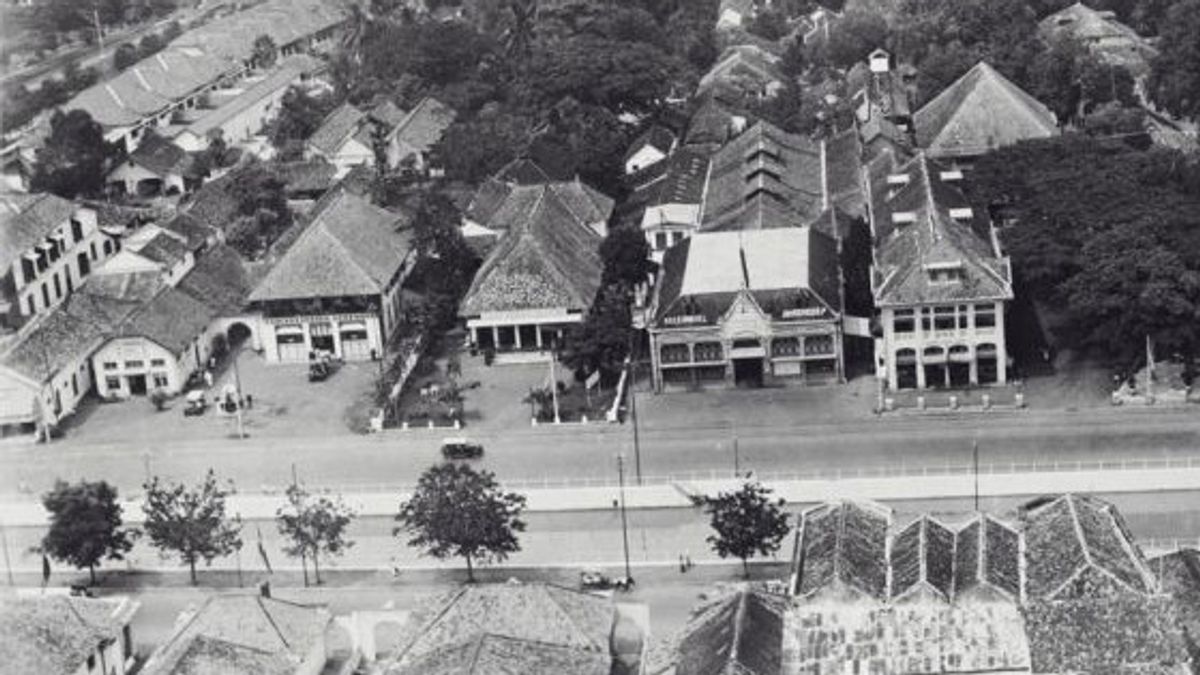
JAKARTA - The Japanese colonialists control the archipelago, there are no two. The Dutch who feel superior are made to their knees. Japan even places white races in the lowest caste. They were hunted down and placed in an interniran camp.
This condition left Dutch luxury houses abandoned throughout the country. Many of the luxury houses are empty. Recently, some of them began to be used by the natives and Japanese people as residences or headquarters.
The Japanese occupation brought fresh air to all natives in the archipelago in 1942. The presence of Japan brings a new hierarchy in society. All Asians who were often number two or three under Europeans (mainly the Dutch) began to change.
Asian races are now at the peak of the hierarchy. The Dutch are actually in the lowest order. In fact, they are often equated or equal to animals. The superiority of the Asian race became the propanganda that was often echoed by the Dutch colonialists. A propaganda that was able to penetrate the sanubari of all natives, moreover they had been hurt during the Dutch colonial period.
The Dutch do not move. No one dared to defend them. The Dutch East Indies government, which they are proud of, has been busy saving themselves. Some of them are willing to leave their people to find their own safety in Australia.
Japanese colonizers began to limit the space for the Dutch by establishing internment camps. The camp was created to isolate the Dutch from mingling with the Asian race. Thejian was also carried out to bring sympathy to the bumiputras who have been colonized for years.
Without being realized by the Dutch in general, the Indonesian people have changed in view of the Dutch. During the Japanese occupation, the population saw how the Dutch, who were considered man' and more superor or greater, turned out to be helpless. They did not give meaningful resistance to the enemy, namely the Japanese army.
They even seemed to run away in fear and then were helpless in detention or interniran camps. Indonesians who were originally inferior to the Ndoro Tuan the Dutch then changed. It turned out that the Dutch were also the same as the natives who could be afraid and feel defeated and desperate," said JB Sudarmanto in the book Biography IJ Kasimo: Patious Politics (2011).
The property of the Dutch was meaningless during the Japanese occupation. All the Dutch were treated equally by the invaders from the Land of Sakura. There is no difference. Those who are rich and lowly employees are still being hunted to be arrested and thrown in an interniran camp.
The arrests left many of the homes in Dutch luxury settlements throughout the country empty. The void made many of the luxury houses abandoned like ghost houses. Moreover, the contents in it were looted a lot.
Japan doesn't care. They also used many abandoned luxury houses to be used as residences or headquarters. The same portion was also carried out by Japanese invaders against luxury hotels in the flashlights of the archipelago.
They treat it like war looted hotels. Some are used as headquarters, some are used as arsenals. It's different with the bumiputras and the Chinese. Many luxury houses are occupied for residences.
The rest, many unoccupied luxury houses ended up abandoned by heavy damage caused by war. Even some luxury houses were destroyed because of the raging war in the archipelago. People consider the large number of abandoned luxury houses to be a marker of the end of Dutch power in the archipelago.
What is equally dramatic is the fact that several European areas of residence in Batavia have been "communicated" during the Japanese colonial period. The Dutch and other Europeans built many white-cat villas located in the middle of large gardens planted with colorful banyan trees, lightning, and bugenvil. However, during the Japanese occupation the houses changed hands. The families of Indonesia Bumiputra and Chinese descendants inhabited many of the former European homes.
In August 1945, many of the former European-owned houses were suddenly empty because Japanese officers who occupied them were forced to leave. Of course, the Dutch who became their legal owners considered bumiputra who lived in their luxury homes as wild residents or thieves when they tried to reclaim their rights after being released from the lepang internir camps, "explained historian Frances Gouda and Thijs Brocades Zaalberg in the book Indonesia Merdeka Karena Amerika? (2007).
The English, Chinese, Japanese, Arabic, and French versions are automatically generated by the AI. So there may still be inaccuracies in translating, please always see Indonesian as our main language. (system supported by DigitalSiber.id)












